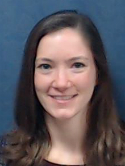Coping with glioblastoma: Prognostic communication and prognostic understanding among patients with recurrent glioblastoma, caregivers, and oncologists Journal Article
| Authors: | Walsh, L. E.; Polacek, L. C.; Panageas, K.; Reiner, A.; Walbert, T.; Thomas, A. A.; Buthorn, J.; Sigler, A.; Prigerson, H. G.; Applebaum, A. J.; Diamond, E. L. |
| Article Title: | Coping with glioblastoma: Prognostic communication and prognostic understanding among patients with recurrent glioblastoma, caregivers, and oncologists |
| Abstract: | Purpose: Glioblastoma (GBM) is a devastating neuro-oncologic disease with invariably poor prognosis. Despite this, research shows patients have unrealistic perceptions of their prognosis, which may relate in part to communication patterns between patients, caregivers and oncologists. The purpose of this study was to examine communication processes and goals among patients, caregivers, and oncologists to elucidate drivers of prognostic understanding (PU) in the context of recurrent GBM. Methods: This was a prospective, multi-center study enrolling adult patients with GBM, caregivers, and oncologists, who independently reported the content of a specific discussion involving the disclosure of GBM recurrence. Communication processes and goals were characterized for each participant, and concordance between all dyads and patient-caregiver-oncologist triads were calculated. Results: Seventeen patient, caregiver, and oncologist triads were analyzed. At the individual level, three (17.6%) patients and 8 (47.1%) caregivers reported having discussed prognosis during the clinical encounter, as compared to ten oncologists (58.8%). Seven patients (41.2%) and 5 caregivers (29.4%), versus thirteen oncologists (76.5%) reported ever discussing prognosis or life expectancy at previous appointments. Generally, patient-caregiver concordance (i.e., both answered the same) regarding communication goals and processes was low. Triads showed limited concordant responses in discussing curability (n = 5), prognosis (n = 4), end-of-life treatment goals (n = 4), and ever discussing prognosis (n = 3). Conclusion: Patients, caregivers and oncologists had discordant views regarding communication processes and prognostic goals, even when recalling a single discussion. This study highlights the importance of clear and frequent communication about prognosis, and the need for further research on communication and PU in the neuro-oncology setting. © 2022, The Author(s), under exclusive licence to Springer Science+Business Media, LLC, part of Springer Nature. |
| Keywords: | adult; clinical article; aged; clinical trial; disease course; cancer recurrence; prospective study; prospective studies; neoplasm; neoplasms; adaptation, psychological; medical information; multicenter study; glioblastoma; communication; physician-patient relations; interpersonal communication; caregiver; coping behavior; terminal care; life expectancy; supportive care; caregivers; patient preference; health literacy; oncologist; oncologists; cancer prognosis; humans; prognosis; human; male; female; article; cancer caregiver; prognostic understanding; doctor patient relationship |
| Journal Title: | Journal of Neuro-Oncology |
| Volume: | 158 |
| Issue: | 1 |
| ISSN: | 0167-594X |
| Publisher: | Springer |
| Date Published: | 2022-05-01 |
| Start Page: | 69 |
| End Page: | 79 |
| Language: | English |
| DOI: | 10.1007/s11060-022-04010-x |
| PUBMED: | 35437688 |
| PROVIDER: | scopus |
| PMCID: | PMC10022487 |
| DOI/URL: | |
| Notes: | Article -- Export Date: 1 July 2022 -- Source: Scopus |
Altmetric
Citation Impact
BMJ Impact Analytics
MSK Authors
Related MSK Work











